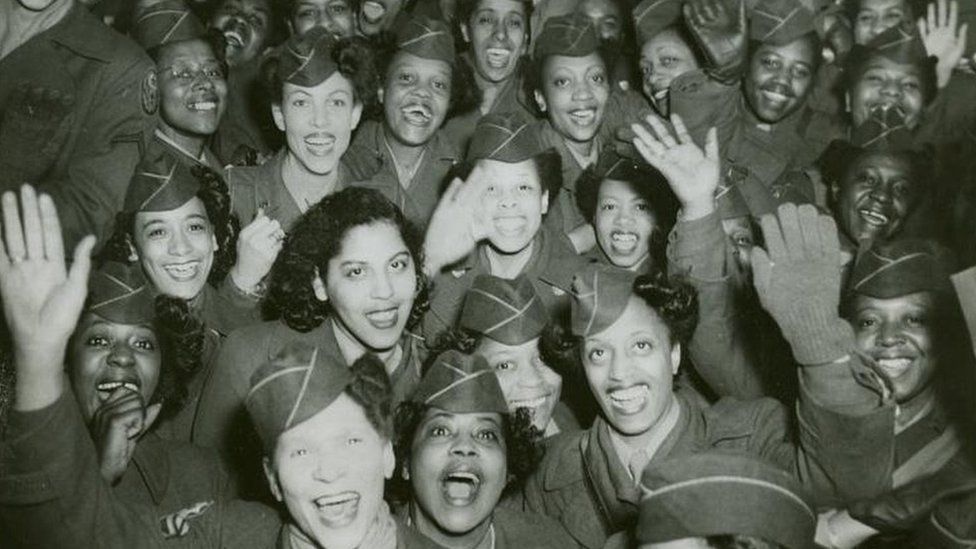An interesting story.
The story of a World War Two battalion of black women who came to England to solve a postal crisis has been hidden for decades, but they are starting to get the recognition they deserve. The BBC spoke to some of their relatives about the unit known as Six Triple Eight.
In 1945, as war continued to grip many parts of the globe, 855 women answered the US Army's call to revive troop morale and clear a two-year postal backlog in England.
They set sail from America to the UK, finally settling in Birmingham to join the 6888th Central Postal Directory Battalion.
Then aged 26, trailblazer Major Charity Adams became the first black woman to command an overseas battalion in the US Army and led the women to solve a huge problem.
They were given six months, but through 24-hour shifts they sorted through 17 million letters and packages in half the time.
In doing so, they helped boost the spirits of personnel on the front line who had lost communication with their loved ones back home.
"I seldom heard anything about black women serving in World War Two, it's like they were deleted from history," said Col Edna Cummings, a retired US Army officer who served for 25 years.
IMAGE SOURCE, US ARMY Image caption, The women had a motto: "No mail, low morale"
Based at King Edward's School, in Edgbaston, the women - who went on to Rouen and Paris in France - faced many challenges including using outdated equipment, cultural differences and gender discrimination. They worked in cramped, unheated and dimly-lit buildings with packages stacked to the ceilings. Many reported being surrounded by mice and rats which had sought out spoiled food in some of the parcels.
Despite this, they defied all odds and earned themselves a reputation for their efficiency and dedication by working under their motto: No mail, low morale.
When they returned home in 1946, the unit, which also included some Hispanic women, were not given ceremonies, parades or any public recognition of their accomplishments.
https://www.bbc.com/news/uk-england-birmingham-66045635



